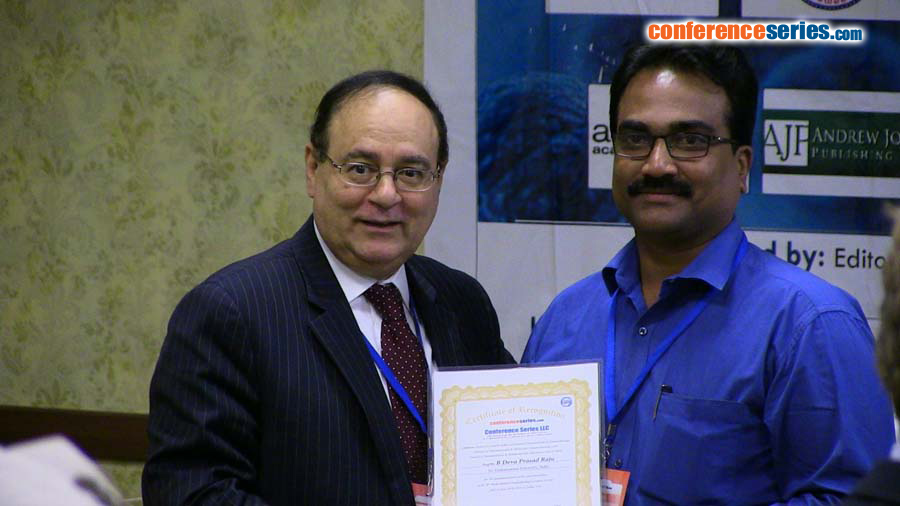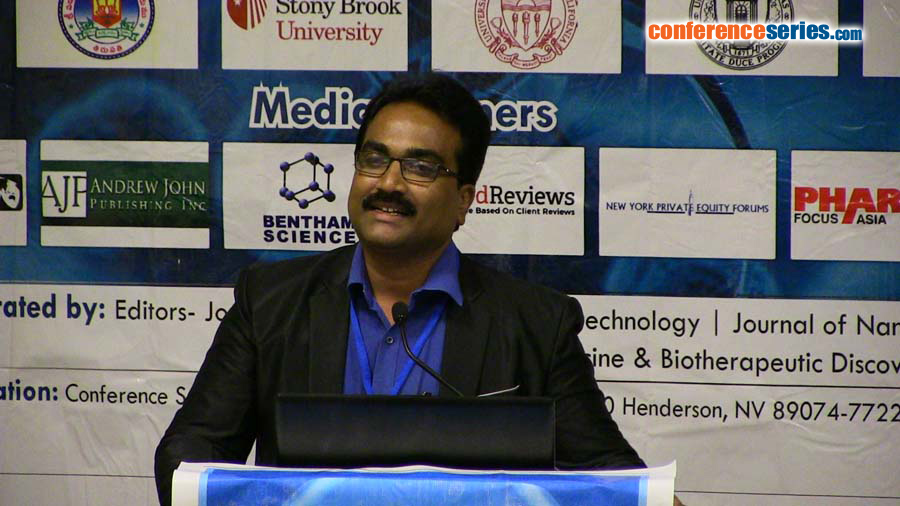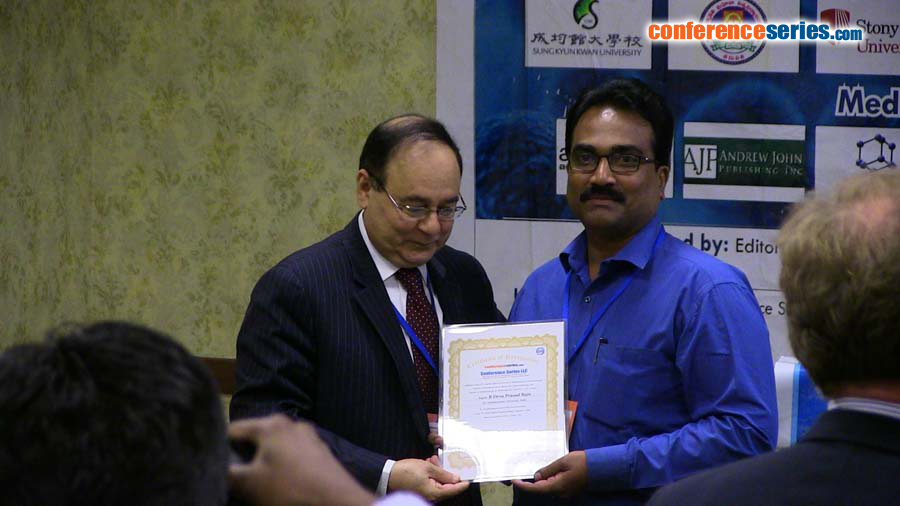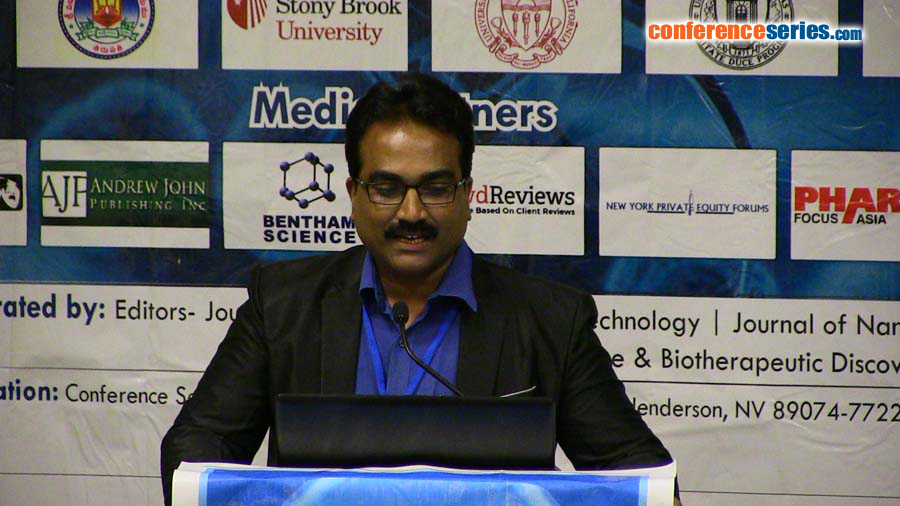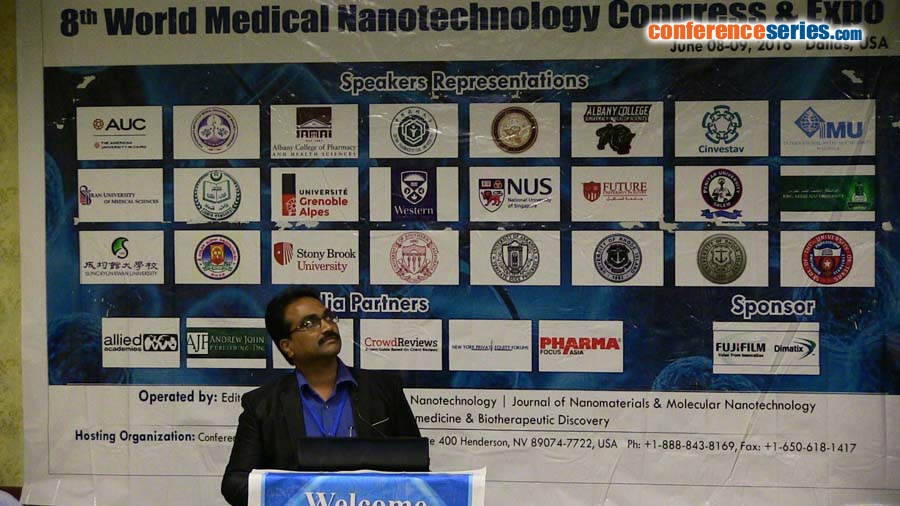
B Deva Prasad Raju
Sri Venkateswara University, India
Title: Surface modification of biosynthesized ZnO nanoparticles by PEG and their antioxidant activity
Biography
Biography: B Deva Prasad Raju
Abstract
Using nanoparticles (NPs) for drug delivery to the brain is a method for transporting drug molecules across the blood brain barrier (BBB). These drugs cross the BBB and deliver pharmaceuticals to the brain for therapeutic treatment of neurological disorders including Alzheimer's disease. The metal nanoparticles such as zinc, gold and silver and oxides of zinc have great role in medical and biological applications. In the present study, zinc oxide nanoparticles (ZnONPs) were synthesized using the Ocimum Tenuiflorum extract and surface of ZnONPs was modified by a polymer reactant PEG (Polyethylene glycol). Structural, morphological, particle size and optical properties of the PEG coated ZnONPs have been characterized by using UV-Vis spectrophotometer, Fourier Transform Infrared (FTIR) spectroscopy, Field Emission Scanning Electron Microscope (FE-SEM), Energy Dispersive X-ray Spectroscopy (EDS or EDX), Zeta Potential and X-ray diffraction (XRD). The UV-Vis spectrum showed an absorption peak that reflects Surface Plasmon Resonance (SPR). The optical measurements were attributed to the band gap. Zeta potential determines the stability of the PEG coated ZnONPs. The antioxidant activity of PEG coated ZnONPs was also determined by Diphenylpicrylhydrazyl (DPPH) and reducing power assay. PEG coated ZnONPs showed maximum inhibition and absorbance. This study indicates that PEG coated ZnONPs may find use in the treatment of neuroinflammation, brain tumors and neurodegenerative disorders such as Alzheimer’s disease where the blood brain barrier is compromised.


